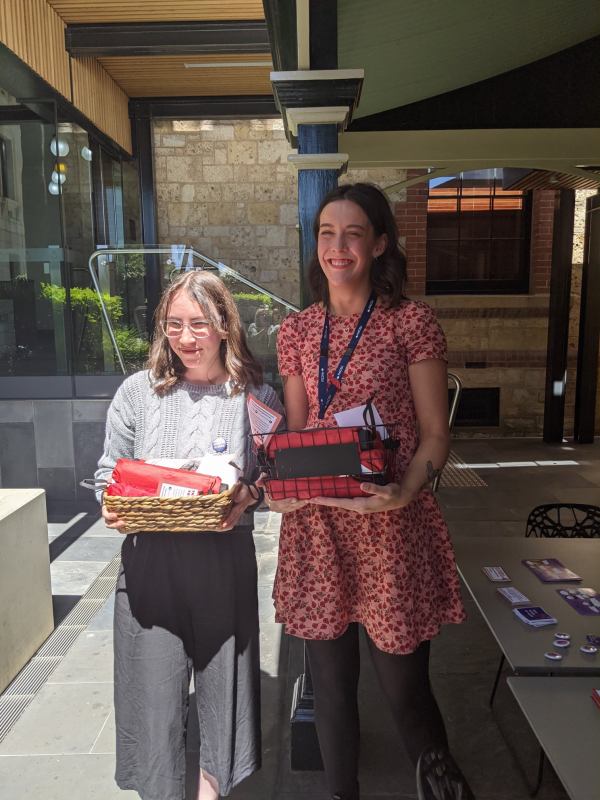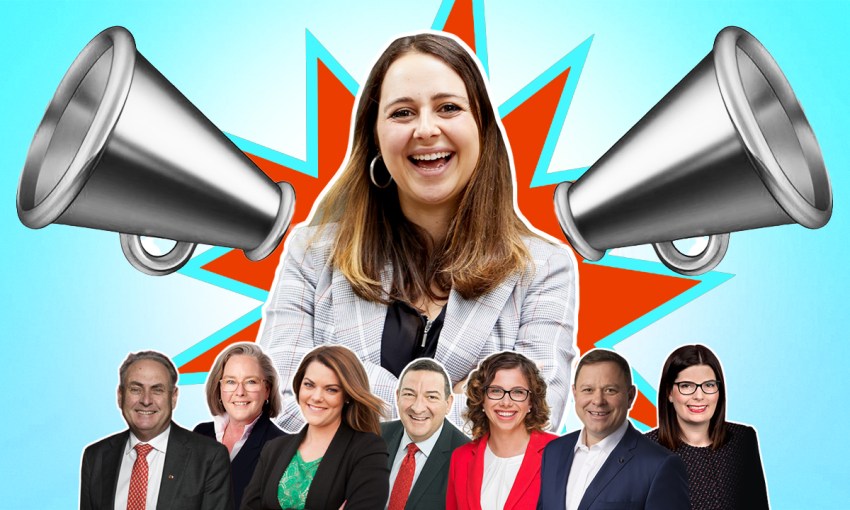November 13-16 marks Youth Voice in Parliament Week, an initiative inviting people 25 and under to have their words amplified by MPs and senators.
Youth Voice in Parliament helps young ideas change old mindsets
Next week, four senators and three federal MPs from South Australia will read speeches written by young South Australians for Youth Voice in Parliament Week.
This is part of a national campaign organised by the volunteer-run social enterprise Raise Our Voice Australia and has 74 federal politicians participating across the country.
The speeches are all penned by young Aussies aged 25 and under responding to the question: what change would make Australia a better place for future generations?
You’ll occasionally hear politicians recalling experiences with young people in their electorate, or reading speeches written by young people who have done work experience in their offices.
But the Raise Our Voice in Parliament campaign – now in its third year – is the largest coordinated effort to put youth voices in front of politicians and the nation.
This year, 241 speeches were submitted by young people across Australia. They’re briefly screened by the volunteers at Raise Our Voice to weed out any vitriolic content, and then submissions are passed on to politicians on an electorate-based model for them to choose the speech they’ll read.
First, the speeches from within an electorate are submitted to that electorate’s member. The speeches not selected by the MPs are compiled into a bigger list and given to the senators, so the senators receive a larger selection of speeches that represent the young voices within their state or territory. New here? Sign up to receive the latest happenings from around our city, sent every Thursday afternoon.
Founder and CEO of Raise Our Voice, Ashleigh Streeter-Jones — who is also a 2024 Victorian Young Australian of the Year nominee — says they invite all federal politicians to participate.
Beyond just choosing what they’ll read, the speeches give them a comprehensive idea of what young people in their electorates, states or territories really value.
“Young people are a diverse group… sometimes we talk about them as a monolith, but they sit in all spaces on the political spectrum and we care about whole range of issues,” Ashleigh says.
“We want to make sure that the things that young people care about are really put in front of the person who’s elected to represent them.
“We can’t dictate the way that politicians engage with their constituents, but we would really love to see all politicians engaging with their young people, whether it’s through this campaign or through another mechanism.”
As a result of 2021’s inaugural Raise Our Voice campaign, they found young people are engaged with politics but feel underrepresented.
“I know we talk a lot about young people being the leaders of the future, but they’re also here leading in the present,” Ashleigh says.
“They’re leading things like climate movements, consent movements; young people are incredibly politically engaged but the things they care about and their voices aren’t necessarily translating through our political systems.”
And for those that aren’t engaging through traditional means, or engaging at all, the Raise Our Voice campaign acts as an entry point.
According to their impact report from that first year, 60 per cent of participants who submitted speeches were engaging with Australian politics for the first time, with 96 per cent saying they would be more likely to engage with politics in the future as a result of this campaign.
In the inaugural year, young women were particularly engaged, making up 61.5 per cent of participants.

Sian Davies (left) getting involved with Georgia Thain, Coordinator of Sex Industry Decriminalisation Action Committee (right)
Sian Davies is 25 and sits within the cohort of politically engaged young women.
By her own admission, if her friends saw her arguing in the street, they’d assume it would be over politics.
“It’s very, very well known that I express my political views and I very much enjoy the debate,” Sian says.
When it comes to state and federal seats, Sian says there’s no reason why politicians shouldn’t take on feedback from young people.
“I know that young people would be so grateful to give feedback if we’re just given the opportunity to do it,” she says.
“I think Raise Our Voice gives a chance for people to hear direct experiences of young people because there are no voices for us in parliament at this time, which I think is super disappointing.”
Currently, there are only three politicians who were aged under 30 at the time of being elected: Greens senator Jordon Steele-John and ALP senator Fatima Payman in WA and Greens Member for Brisbane Stephen Bates. All of whom have opted in to read speeches from young people as part of the campaign.
The 2021 census found 18.2 per cent of the population were Gen Z (aged 10-24), and Sian believes this should come with a shift to see more young voices in parliament, at all levels.
“We represent such a large portion of these electorates, in order to get votes to be elected, they’re going to have to listen to young people about what they need – whether it is on a local government level all the way up to the federal parliament.
“Where I’ve just moved, the two councillors are a 40-year-old man and a 60-year-old woman. Like, what would they know about my needs and my wants for the local neighbourhood?
“They wouldn’t, they just wouldn’t.”
While Sian’s speech wasn’t selected to be read by a politician in Youth Voice in Parliament Week, it won’t go to waste.
It still got in front of her member and senators in the process, and Ashleigh from Raise Our Voice confirmed their organisation is working to provide more opportunities for the speeches and the young people behind them.
One initiative is a partnership with WhyNot, an online platform run by the Y organisation to publish opinions, ideas and stories by young people.
Raise Our Voice is also working on other opportunities for participants, whether their speeches were chosen by the politicians or not.
In the past, this has looked like offering workshops on the themes – such as climate – that young people indicated they cared about.
Raise Our Voice is currently reviewing meaningful engagement options to allow them to provide sustained support for young people engaging in politics beyond Youth Voice in Parliament Week.
Sian believes initiatives like Raise Our Voice are valuable to help young people overcome feelings of voicelessness.
“People will take one look at you and they’re like, ‘oh, you’re young’ and then you’re completely dismissed,” she says. “It’s unfair because I know that we have a lot to say and a lot of value in what we say.
“I think voices are powerful, and the collective voice is even more powerful… eventually, we will outnumber those older generations.”




